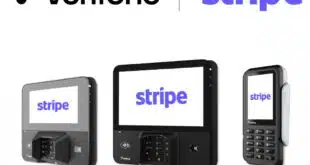Uber and mass-transit software developer Masabi Ltd. have struck an agreement that will allow transit tickets and passes to be displayed on Uber’s mobile app.
Masabi’s apps and software systems for transit are used in 30-plus metropolitan areas, including on the Metro-North and Long Island Rail Road commuter-rail systems in the New York City area, and in Boston, Los Angeles, London, and Sydney, Australia.

“Once an agreement is reached with a transit agency, Uber users will have the option to book and display Masabi customers’ transit tickets in the app, allowing for seamless transfers from ride-sharing to public-transit services for convenient multimodal journeys,” James Gooch, head of marketing at London-based Masabi, said in a Wednesday blog post. “The two companies will also be working together to offer the integration to new cities around the globe.”
The Masabi agreement represents the latest expansion of San Francisco-based Uber’s ride-hailing and payments app beyond cars. Uber announced Monday that it was buying Social Bicycles Inc., which does business as Jump and rents electric bikes. Uber and Jump began a test program in January in which San Francisco riders could rent Jump bikes, and on Wednesday they said the program was expanding to Washington, D.C.
“For many people, getting around their city is already a multimodal affair, and this [Masabi] partnership will let riders seamlessly combine public transit with other transportation options like ride-sharing, no matter where they need to go,” Uber chief executive Dara Khosrowshahi said on the company’s blog.
Uber’s new ticketing option will be powered by Masabi’s Justride software development kit, which the company calls the only mobile-ticketing SDK for public transit. The SDK allows third-party software applications to request fare types, make payments, and deliver visual and barcode mobile tickets to a passenger through a secure ticket wallet, Masabi said.
According to Will Judge, vice president of enterprise partnerships at Mastercard, the Masabi-Uber pact is the latest example of “mobility-as-a-service” in which technology providers such as Masabi and Mastercard work to improve transportation options by teaming up with developers such as Uber.
“What this means is that Uber is evolving into an orchestrator of multiple mobility services rather than just a provider of car rides,” Judge said in a blog post. “The familiar Uber app started out as a brilliant tool for planning, ordering, and paying for a car journey, but is now being extended to deliver planning, booking, and payment for complex multimode trips involving a range of different ticketing systems.
The Mastercard spokesperson said details about the mechanics of payments through the Masabi-Uber partnership haven’t been communicated yet by the two firms. Although Mastercard is an investor in Masabi, payment cards on other major networks can be loaded into Masabi transit apps.





